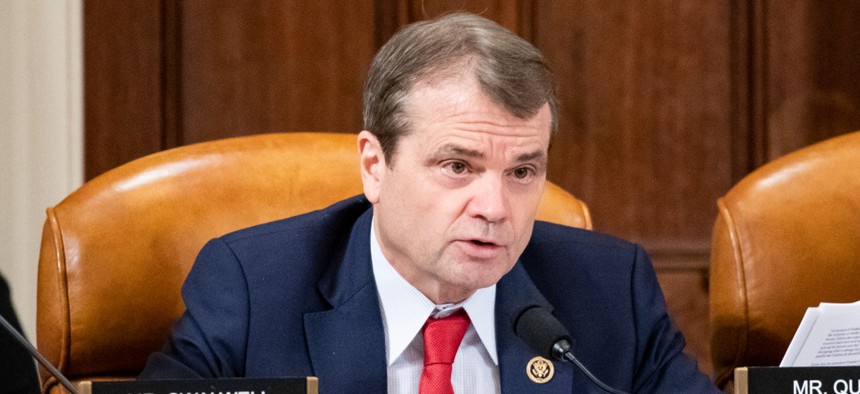
Rep. Mike Quigley, D-Ill., was one of the sponsors. Samuel Corum - Pool/Getty Images
A Bipartisan Bill Looks to Better Prevent Mishandling of Classified Documents
“This legislation will discourage sloppiness during transition periods, safeguard our national security, and keep Americans safe,” said Rep. Mike Quigley, D-Ill.
A bipartisan pair of lawmakers is looking to crack down on mishandling of classified documents, whether intentional or not.
There is currently a high standard for criminal penalties for the mishandling of classified documents, according to Reps. Mike Quigley, D-Ill., founder of the Congressional Transparency Caucus, and Darin LaHood, R-Ill., a member of the House Permanent Select Committee on Intelligence. That is why they introduced the Classified Documents Accountability Act on Friday, which would add civil penalties to the mix of potential consequences for improperly holding onto classified documents.
“Recent events have shined a light on the need to implement penalties for top-level officials who inappropriately keep classified documents, regardless of their intent. There must be accountability for carelessness,” Quigley said in a statement. “This legislation will discourage sloppiness during transition periods, safeguard our national security and keep Americans safe.”
This comes on the heels of the FBI’s seizure of classified documents at former President Trump’s Mar-a-Lago club over the summer and the discovery of classified documents in President Biden’s Delaware house and former office, and at former Vice President Mike Pence’s house. Special counsels are investigating the situations for the former and current presidents. Also, the National Archives asked representatives for former presidents and vice presidents from the last six presidential administrations to re-check their personal records for ones that should have been turned over.
The current criminal statute focuses on intent and knowledge, so the lawmakers looked to “enhance” the rules so that there are penalties for improper maintenance of documents, even if the criminal standards aren’t met, LaHood said on CNN last month about the forthcoming bill. “We’re enhancing this so the prosecutors have more tools, so we deter this type of behavior.”
The act would amend the U.S. code on “unauthorized removal and retention of classified documents or material” to create a civil penalty of up to $500,000 for each unauthorized removal or retention of classified materials. This “does not preclude any other criminal or civil statutory, common law, or administrative remedy,” said the bill’s text. This provision would not apply to sitting presidents or vice presidents, and would take effect only after they left office.
“The bill also establishes a formal logging and certification process for presidents and vice presidents to turn over classified materials to the National Archives and Records Administration at the end of a presidential term,” said a press release from the lawmakers. For outgoing presidents or vice presidents who don’t submit their certifications, there would be certain penalties, including a pension decrease of up to 50% and suspension of staffing, travel funding and office space.







